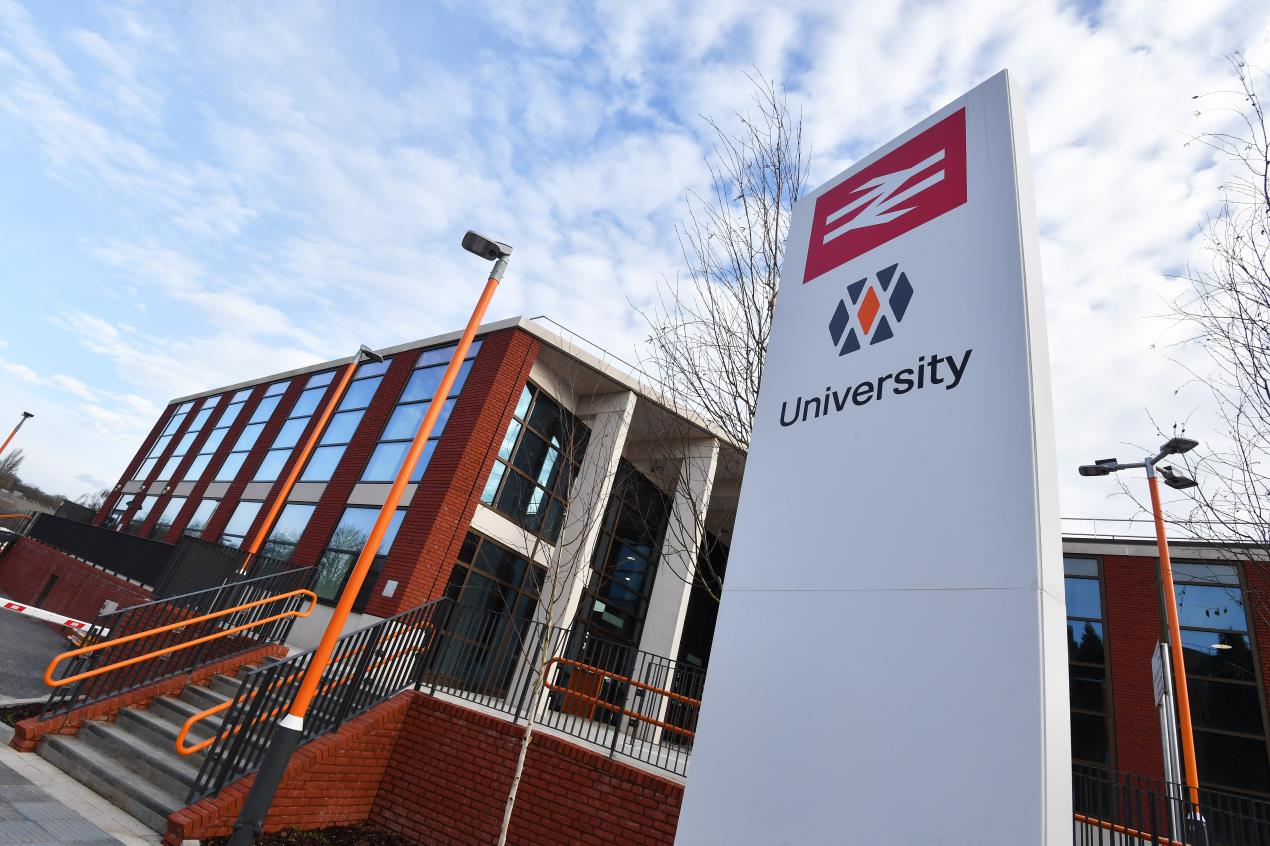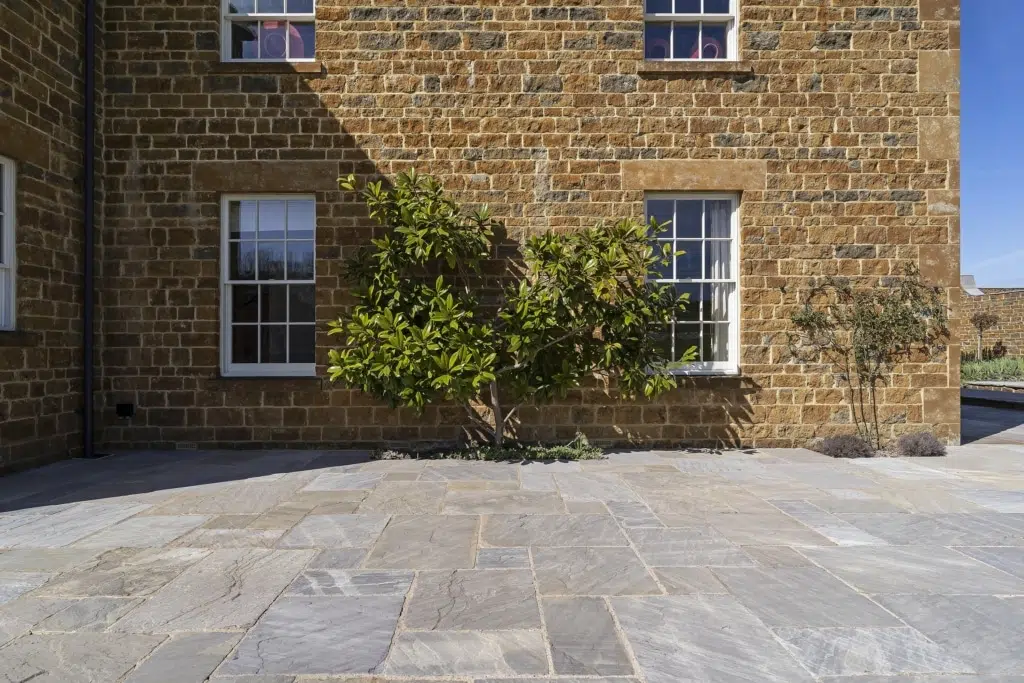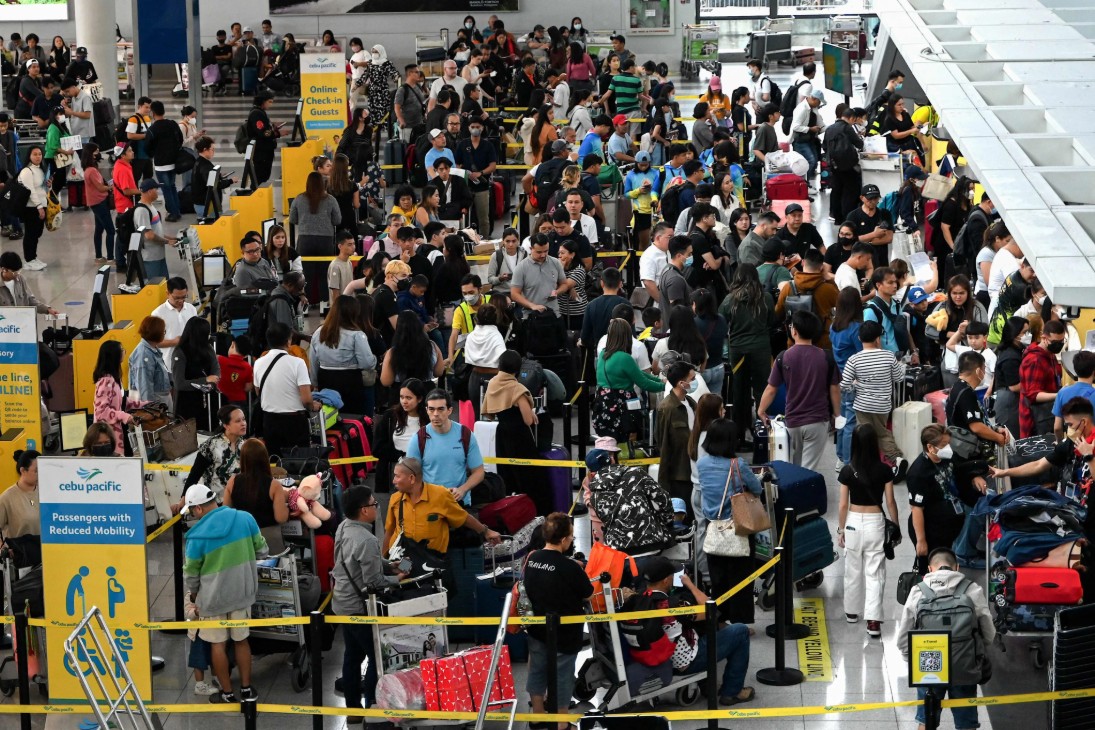University Railway Station’s impressive new buildings open their doors to passengers for the first time today (Sunday, 28th January).
With new wider entrances, stairways and exits serving the neighbouring University of Birmingham and Queen Elizabeth Hospital, more open space to circulate and wait, lifts to the platforms, a larger ticket office and better customer facilities it will offer a vastly improved experience for passengers on the Cross City Line. The main pavilion building also includes space for a café or convenience shop, due to be announced soon, and an NHS facility on the first floor.
University is one of the region’s busiest stations with up to 3.5 million passengers a year who, until now, have passed through a tiny station designed and opened in 1978 to accommodate just 500,000 journeys per year. This existing building is being retained as an exit only.
Visitor numbers have rapidly increased over the last decade as a result of the expansion of both the university and the redevelopment of the hospital and, anticipating further growth in visitors the new station has been designed to accommodate up to 7.2 million passengers. The opening follows a complex three-year construction programme during which the station remained open and operational.
This included installing new bridges over both the live railway line and the Birmingham to Worcester canal. The new station includes two buildings, or pavilions, one of which is based on the island between the rail line and canal for which materials had to be craned over.
The first stage of the development saw longer and wider platforms, complete with new canopies completed ahead of the Birmingham 2022 Commonwealth Games. Transport for West Midlands (TfWM), which is part of the West Midlands Combined Authority (WMCA), and the West Midlands Rail Executive (WMRE) have led the development in collaboration with the University of Birmingham, the NHS University Hospitals Birmingham Trust, Birmingham City Council, the Department for Transport, Network Rail, West Midlands Trains and Cross Country Trains.
TfWM were supported by their delivery partner SLC-AECOM Joint Venture and VolkerFitzpatrick who worked on the design and construction of the station. TfWM is putting more than £2 billion investment in improving our public transport infrastructure and services over the five years to 2027, including building five new railway stations, developing new Metro extensions and creating more bus priority and cycle routes across the region.
Andy Street, Mayor of the West Midlands and chair of both the WMCA and WMRE, said: “Given the millions of people a year the University of Birmingham and QE Hospital collectively draw in, it’s been clear for some time that a new fit-for-purpose station was needed.
“So, I’m pleased that finally - despite the sometimes less than ideal pace of progress - we can unveil the new University Station. From the outset, the project team have involved partners at the University of Birmingham and the NHS in a collaborative approach that has ensured the building has been designed and delivered to meet their needs.
“It’s good news that we now have a superb gateway for thousands of people arriving at University every day - no longer having to queue on stairs and funnel through what was a fairly tiny building on their way to lectures or hospital appointments. This is a high-quality facility that will serve local people in the months and years ahead.”
Councillor Liz Clements, Birmingham City Council cabinet member for transport, said: “This is fantastic news and a really good example of partnership working to provide a station that is suitable for such a busy and growing area. Investment in our railways and wider public transport network must continue if we are to prioritise people and communities over private vehicles and keep our city and region moving.”
University of Birmingham Vice-Chancellor, Professor Adam Tickell, said: “The station is an important gateway to the University, Queen Elizabeth Hospital, and our local community. As the University continues to grow, this new, more accessible space creates a welcoming experience for all.”
Jonny Wiseman, customer experience director at West Midlands Railway, said: “University is one of the busiest stations on our network with crucial links to the University of Birmingham and Queen Elizabeth Hospital so I am delighted that work at the station is now complete. The redevelopment will improve rail connectivity at University which is a huge boost for the millions of passengers who travel through the station every year.
“We will also be introducing new trains on the Cross City Line later this year so the capacity increase is a further benefit to the region.” Route programme director for Network Rail, Neil Gaskin, said: “I’m delighted to see the opening of the upgraded University station, providing the millions of passengers that use the station each year with a fantastic and fit-for-purpose station that supports the ambitions of the city and the significant growth in passengers expected in the years to come.
“This has been a highly complex project and I am proud of how hard our teams have worked in close conjunction with our partners to deliver a station upgrade, whilst keeping the railway open, that makes journeys to the university and nearby hospital much easier for all passengers and encourages people to travel by rail, the cleanest and greenest way to travel.” James Hindes, managing director for VolkerFitzpatrick, said: “We are proud to have played our part in the new station delivery at University Station Birmingham, all of which has taken place whilst maintaining a live operational station. Our team has worked in collaboration with our partners and key stakeholders since the outset of the project.
“The station has been completely transformed and now provides a modern, future-proofed solution to the ever-increasing demands in this area, and will leave a lasting legacy for Birmingham."
Councillor Mike Bird, WMCA portfolio holder for transport and leader of Walsall Council, added: “University may now be complete but our work on the railways will not stop there – we have construction well under way on five new stations in Birmingham and the Black Country which will offer our communities even better connections to the wider region. There are also plans in the pipeline to develop even more stations. This investment in quality public transport networks acts as a catalyst for further investment, regeneration and jobs for our towns and cities.”











